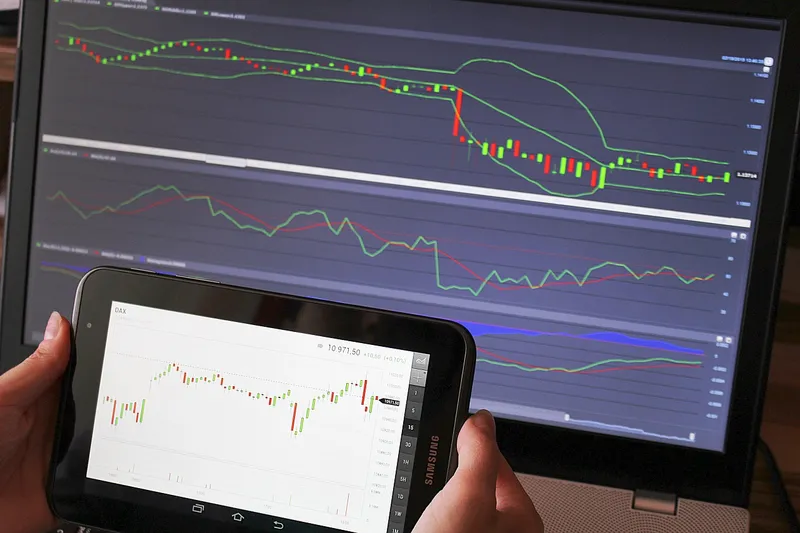

How to Educate Your Client and Succeed Together
The owner of a very popular forex trading company faces a dreaded dilemma for any trading platform—demotivated traders. TradeFW.com broker is going to share its story of successful clients and profitable broker.
As was mentioned above every owner of a very popular forex trading company faces a dreaded dilemma for any trading platform—demotivated traders. Despite throwing money in the form of generous bonuses at the hundreds of new traders who sign up for his online forex service each week, most quit his forex trading platform with no money. Because forex brokers make money on trading fees, the forex chief needs to increase trading volume to be profitable.
But instead, the broker has fallen into a bonus fallacy trap. A very successful trader, himself, the forex broker would be better off sharing his trading knowledge than lamenting how it is getting harder and harder to attract traders with good trading skills. The short-sighted trader who is more motivated by short-term gains (the bonus) than long-term gains is equally responsible for the poor trading performance.
You can avoid the bonus trap my investing in trader communication and education, which have more long-term value than bonuses. A bonus can serve as a carrot to attract traders to your trading platform, but to retain the traders, you will get a better return on investing in the education and skills development of your traders.
Deceptively Easy Money

Deceptively Easy Money
Like any new skill, practice makes perfect so the broker rationale to give traders more money to trade seems to make sense. But in the forex market becoming profitable requires a lot of practice. Traders often paper trade for months before they are confident enough to trade in real time. And it takes more practice still before they are profitable. Dangling bonuses in front of traders provides an external reward to motivate them to trade, but when the bonus disappears so too does their motivation.
If you want to avoid the demotivated trader dilemma, you need to escape the bonus mentality. As an FX broker TradeFW.com, you can get a better return by investing in helping your client become a more proficient trader. A key trader development tool is forex education and training. Education externally motivates individuals. The more the trader learns and practices, the more he will improve his trading skills. But more importantly, as he improves performance, he improves his confidence as a trader.
Forex brokers online come and go because they fall into the bonus trap. Alternatively, you could forge an education partnership. By improving the forex trading skills and performance of your clients, they in turn will help you increase your forex trading volume, and thus fee revenues.
It’s a win win for the forex broker and traders!
Gut Instinct vs Discipline
From the basic forex trading for beginner’s course, you have an opportunity to develop a relationship with your traders. Once you move beyond what is forex trading and explaining how this $5 trillion daily market operates, the opportunity to add value to the trader’s forex trading experience increases.
Most traders will seek some form of forex training, whether it be a week at a $5,000 training academy or YouTube videos. There are a lot of benefits for traders to train on the platform they are actually going to trade on.
Attending a training seminar for a few days can be informative but when the market is open and traders are applying trading strategies, human instinct and impulse cause them to make mistakes such as exiting trades too early—a major cause of trading losses.
Remember that a large part of trading is psychological. Even if a trader graduates with the highest marks from the forex trading academy, if he does not have confidence trading in a real environment he will fail. Likewise, if he does not have discipline he will fail.
Both a lack of confidence and discipline cause traders to act on instinct rather than market analysis.
Four Pillars of Forex Education

Four Pillars of Forex Education
Forex trading, therefore, needs to start with a trading plan to instill discipline and confidence in the trader. The best analytics tools will not help if in a volatile market the trader acts on impulse and ignores price signals based on trading limits he himself has set. So before introducing the basics of how to trade with forex trading tools, a trading and risk management plan should be developed.
To avoid the big FX broker's dilemma, you would be wise to add a fourth pillar to your forex training and education program.
1. Risk Management
Key components of forex education should include:
- Developing a trading plan
- Setting risk management limits
- Setting stop-losses and other trading parameters
- Establishing a margin limit
Once a risk management plan is in place, the trader is then ready to move onto trading tools.
2. Forex Trading Tools and Analytics
- Understanding basic price and volume indicators
- Using moving averages, bollinger bands, stochastic and other technical analysis tools
- Trading robots and other automated tools
If you offer proprietary trading tools and analytics, training traders on how to gain an edge with your forecasting tools or trading bot is another win-win. If you can improve trader performance, the trader will stay on your forex trading platform.
3. Forex Trading Strategies
Once a foundation in the basics is developed, forex trading strategies can be tackled.
- Fundamental trading strategies
- Technical trading strategies
Here, the trader has more freedom to explore different techniques and training programs on and off your platform. Copy cat trading is a good way to explore different forex trading strategies.
4. Trading Self-Mastery
The fourth forex education pillar, self-mastery, may not appear on most trading training agendas but it explains why bonuses are only a short-term solution.
Mastering Forex Trading
The rich but lonely forex broker would have done well to invest in education because education leads to self-mastery, and self-mastery leads to better trading performance.
But the investment markets have long misunderstood and misused bonuses. Brokers and bucket shops have always paid sales people bonuses to get traders in the door and trading. As the rise of online trading increases competition, brokers are also paying traders sign-up bonuses.
But studies show that bonuses do not improve long-term trading performance. Nonetheless, Wall Street bonuses averaged $184,220 in 2017, but the last time they climbed that high was before the global financial crisis when market returns were based more on financial engineering than economic performance—more evidence that bonuses are not the best way to motivate traders to develop their trading skills
The more productive investment is in building relationships with the client, and together investing in his education and trading success. If the trader wins, the FX broker wins.
By giving traders bonuses, forex brokers are intrinsically motivating them. By training traders and giving them confidence and self-mastery, brokers are drawing on extrinsic motivation.
Studies show that confidence and self-mastery of skills lead to higher trading performance. To develop motivated traders, investing in education and training is a more productive use of your resources than bonuses.
Online currency trading is a skill. Like any skill—be it baking, conducting or trading—education and training will help the student succeed. Mentoring not money turns out to be the key to success.
Once traders start forex trading—be it as a hobby or forex trading career—they operate independently. You can provide valuable support to forex traders by providing a foundation in forex education, training and self-mastery.




